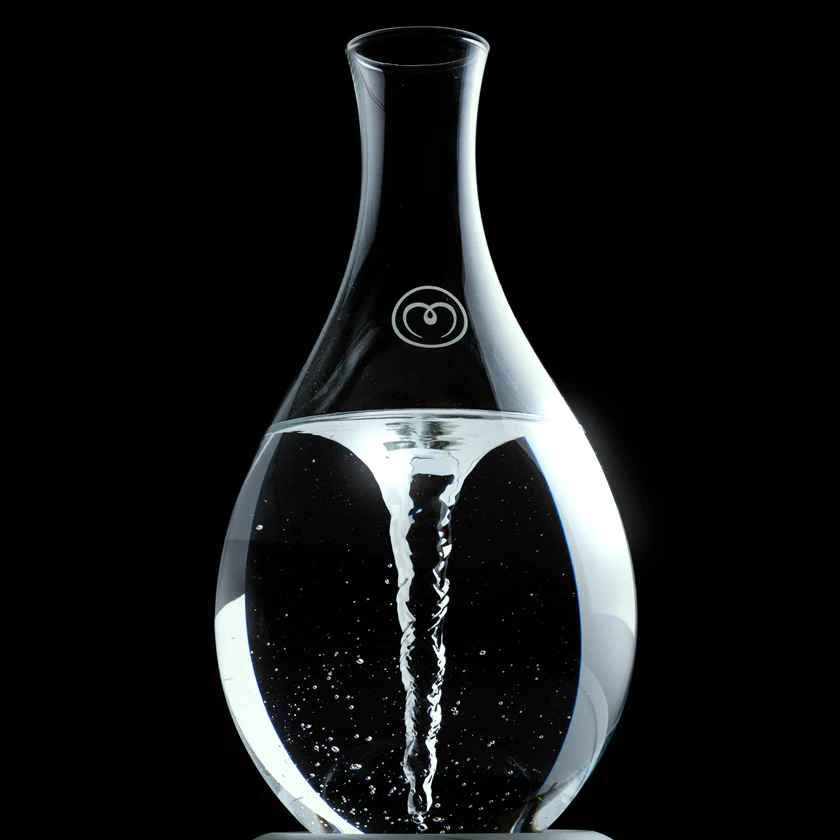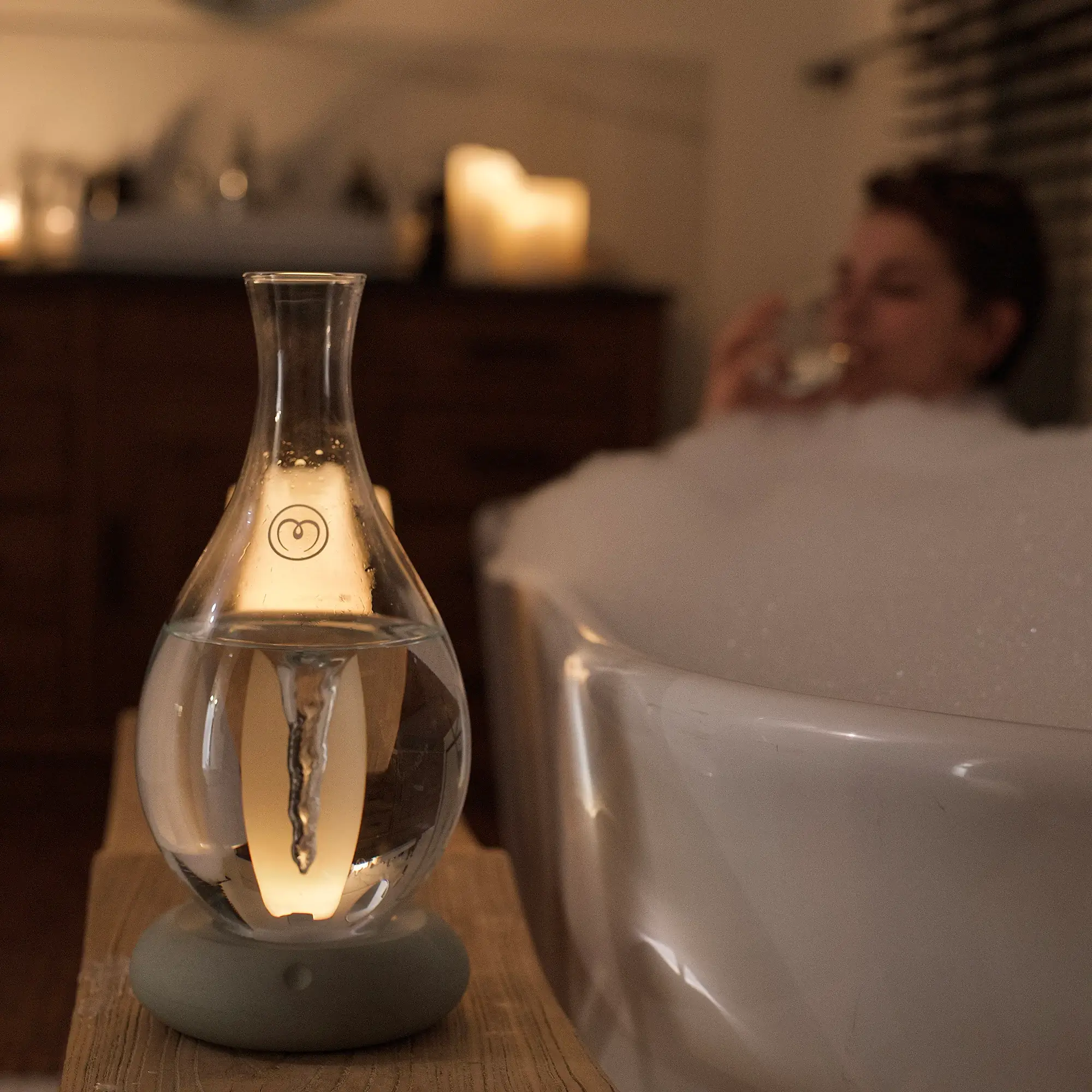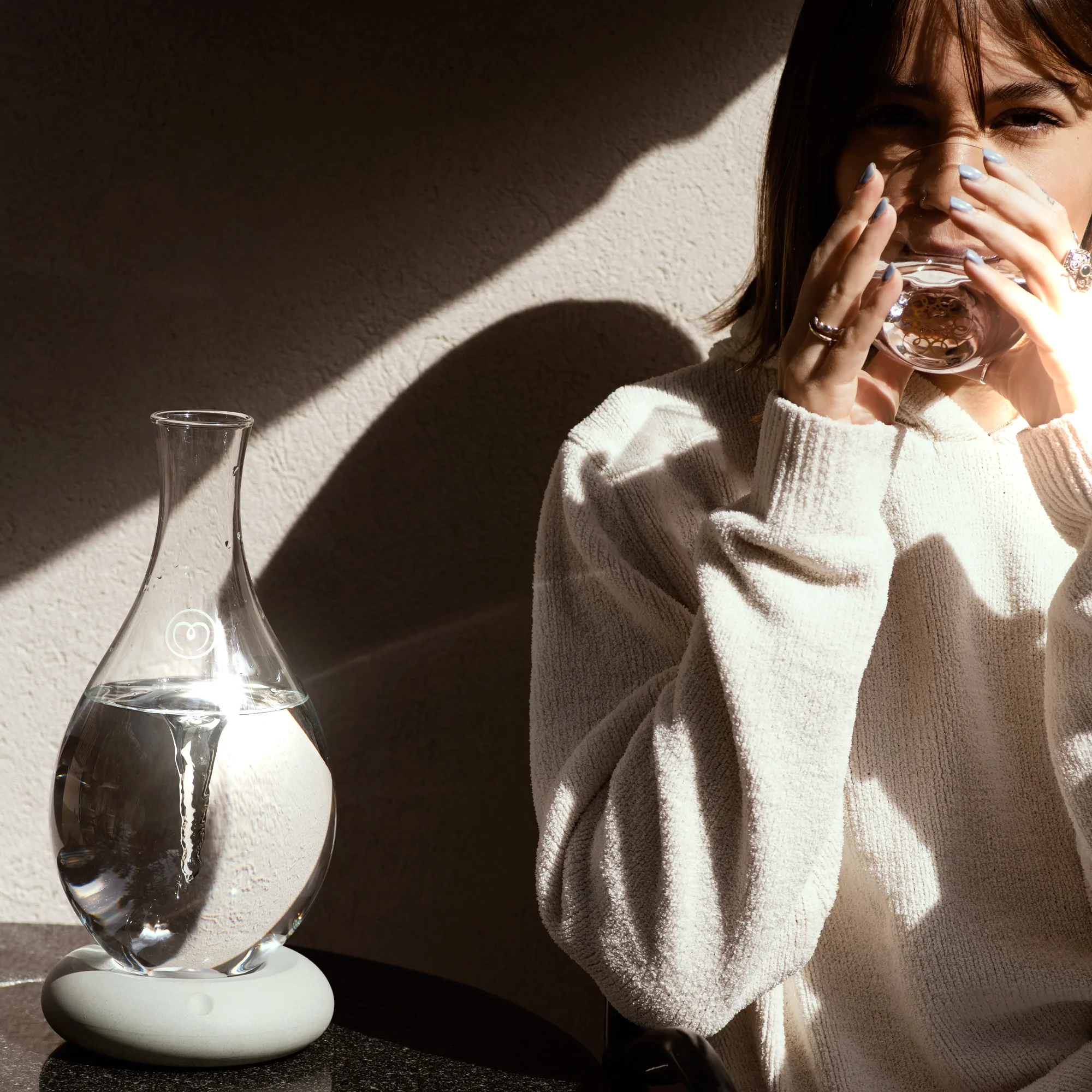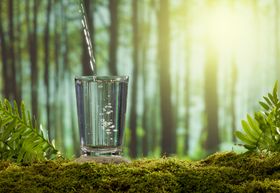Hydration and Allergies: Can Drinking Water Alleviate Symptoms?
Explore how drinking water can alleviate allergy-related discomfort and improve well-being. Discover the benefits of structured water for effective allergy management.
Published October 6, 2024

According to the 2021 National Health Interview Survey in the United States, 24.7% of adults had a seasonal allergy, and 27.2% of children had one or more allergies. Allergies impact the body in various ways, from runny noses and watery eyes to coughing and sneezing. These symptoms vary based on what triggers them. For instance, nasal congestion can be a sign of histamine intolerance.
Adequate cellular hydration is crucial for various physiological processes, like regulating body temperature and staying focused. And to help manage the effects of allergy symptoms, it's just as necessary.
Here's what to know about the connection between drinking water and allergies.
» Uncover the healthiest and most nutrient-rich types of water
Understanding Allergies
When you have a physiological reaction to substances in your environment that are generally harmless to most people—like pollen, pets, medications, or certain foods—it is called an allergy.
With allergic reactions, the body's immune system responds to specific foreign proteins called allergens and produces antibodies to combat these perceived threats. When the body reencounters the allergen, these antibodies bind to specific cells, leading to the release of chemical substances, including histamines.
Can Allergies Cause Dehydration?
Dehydration is a commonly overlooked allergy symptom, particularly with seasonal allergies when there are temperature changes and dry air. Allergy symptoms such as a runny nose, sneezing and itchy eyes can result in higher fluid loss from the body. This can cause fatigue, headaches, and other symptoms.
Dehydration is not only a symptom of allergies but can also trigger allergic reactions. When the body experiences extreme dehydration, it can lead to an increased release of histamine, resulting in symptoms similar to those seen in seasonal allergies.
Fact: Excessive heat can lead to dehydration, which can cause hives.
How Can Water Alleviate Allergies?
Allergies can manifest in several ways, one of which is thirst. When allergies cause nasal congestion and a stuffy nose, it can force you to breathe through your mouth. This may lead to symptoms like dry mouth, difficulty swallowing, shortness of breath, and increased thirstiness.
Now, you might be curious if drinking water helps manage allergic reactions. Let's see how:
- Drinking water helps reduce histamine release, as well as alleviates the accompanying allergy symptoms.
- Hydration helps you flush out allergens circulating in your body, removing foreign substances and minimizing the risk of allergic reactions.
- Water helps thin the mucus in your nasal passages, facilitating better sinus drainage and relieving congestion.
To stay hydrated, prioritize caffeine-free alternatives to coffee and soda, such as water, because caffeinated beverages lack water's hydrating and allergy-reducing properties.
Drinking Water and Allergies
While water is beneficial for allergy management, note that tap water may contain chlorine. Chlorine is added during treatment to ensure water safety by removing harmful bacteria. But chlorine can act as an allergen for some and can irritate the lungs and skin.
This can trigger allergic reactions, such as:
- Making breathing more difficult if you have asthma
- Drying out skin and exacerbating existing dermatitis
» Find out more about how water protects and boosts your immune system
Structured Water: An All-Natural Solution
Unlike regular tap water, structured water undergoes a unique process—aeration—that reorganizes its molecular structure, removing dissolved gases like chlorine. This process enhances the water's bioavailability, improves its hydration quality, and nourishes the body at a cellular level.
If you're eager to stay on top of hydration with chemical-free water that helps you manage your allergies, consider Mayu Swirl—a carafe that aerates the water for easy absorption into the body.


















































